Gay Dictionary Chinese
How to say gay in Chinese
Below are the words of our Chinese Gay Dictionary that we will expand in new editions. If you know any more, please, contact us. But first some information about the language and where it is spoken.
When we speak about Chinese language, we actually refer to the set of languages closely related to each other spoken in China, belonging to the Sino-Tibetan family and now spoken by 1325 million persons. In our Chinese Gay Dictionary, you can find expressions of different Chinese languages.
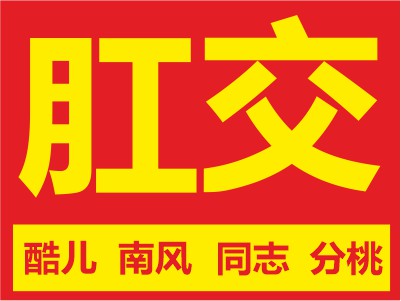
As in the rest of the planet, there was a time when homosexual behavior was normalized in China until in 1740 the first law against it was approved. The rejection of sexual diversity came from the hand of the West during the Self-Strengthening Movement, which intensified during the Cultural Revolution.
Finally, in 1997 homosexuality was decriminalized and in 2001 eliminated from the list of mental illnesses. However, the policy of the authorities has not been aimed at granting rights or protecting against discrimination, being substantiated in the slogan of the “three noes”: not approve, not disapprove and not promote. Socially, the situation is different in colonial regions such as Hong Kong, Taiwan or Macao, where there is much more freedom, activities and LGBT cultural production than in mainland China.
- +
Bōlī (玻璃)
The English translation of the Chinese word bōlī (玻璃) is crystal, glass, etc., and since the mid-90s it has been used as a slang term for homosexual men by the LGBT community in China and Taiwan. This slang word comes from the English acronym B.L., which has several versions, like Boy Lover, Boy’s Love, Boys Love. All of them serve to refer to the love between boys, men, etc.

T-shirt with the bōlī (玻璃) drawing. You can purchase it in our online stores.
Read more: Bōlí. Gay Dictionary (China, Taiwan)
+Duanxiu (断袖)
The translation of the Chinese expression Duanxiu (断袖) is “cut sleeve” and it is another classic expression whose origin dates back to the time when sexual diversity was not a problem in China. The story behind this expression tells the situation between Emperor Ai of the Han dynasty and his lover Dong Xian, who fell asleep on one of the sleeves of the emperor’s clothes, so he preferred to cut the sleeve to wake his lover. The expression Duanxiu (断袖) gained popularity again with the premiere of Ang Lee’s movie, Brokeback Mountain, whose Chinese title was Duanbei Shan (断背山).
+Fentao (分桃)
The literal translation into the Spanish language of the Chinese word Fentao (分桃) is “portioned peach” and it is a classic expression related to male homosexuality because a story, between myth and reality, of a man, Long Yang, who shared the fruit with his male lover, the Duke of Ling, a gesture acclaimed by the writers of the time as romantic and filial. It is necessary to highlight that the legal and social condemnation of homosexuality in China came imported from the West during the self-strengthening movement in the 19th century. Until then homosexual behavior was visible and accepted by Chinese society. The expression Fentao (分桃) is a clear example of how homosexual behavior did not represent any problem in the past.
+Gēi-Lóu (基佬)
Gēi-Lóu (基佬) is a colloquial neologism that we could translate as a homosexual man. The first part “Gēi” is a linguistic loan from English that, although it means base or basic, is used for its phonetic resemblance to the word gay. The second part “Lóu” is a suffix that tends to be derogatory and indicates that the first part is referring to a man.
+Ku’er (酷儿)
The Chinese expression Ku’er (酷儿) is the phonetic adaptation of the English word Queer and is with tóngzhì (同志) one of the expressions preferred by the Chinese LGBT community. As society has progressed in rights and freedoms, in addition to imported expressions such as ku’er (酷儿) new ones have been coined, some fun and surprising, used inside and outside the collective:
· Yī hào (1 号): the literal translation is “number 1” and has the meaning of top because the number one symbolizes the penis.
· Líng hào (0 号): the literal translation is “number 0” and has the meaning of bottom because the number zero symbolizes the anus.
· Líng diǎn wu hào (0.5 号): versatile.
· Líng diǎn qī hào (0.7 号 ): mostly top.
· Líng diǎn sān hào (0.3 号): mostly bottom.
· Yīlíng (10 肛交): to have anal sex.
· C: feminine man, the short form of the English word sissy.
· Chū guì (出柜): to come out of the closet.
· Zhí nán (直男): it literally translates as a straight man and means heterosexual man.
· Wān nán (弯男): it literally translates as curved man and means gay man.
· Hóu zi (猴子): it literally translates as a monkey, and is the Chinese expression for the English word Twink.
· Biàn wān (变弯): expression used to refer to a straight man who has become gay. The similar expression Bāi wān (掰弯) would be to convert gay to a hetero …
· Tongqi (同妻): It is a neologism composed of the fusion of the expressions tóngzhì (同志) [common expression for gay] and qi zi (妻子) [wife] used to refer to heterosexual women married to homosexual men. It is estimated that 80% of Chinese gay men marry women because of social and family pressure to marry and have a child. A rather tragic issue that, according to LGBT activism, would be solved, in part, if equal marriage were allowed.
+Nanfeng (南风)
The literal translation of the Chinese expression Nanfeng (南风) is “southern wind” and it is a classic expression that can be found in ancient texts. This expression was frequently used during the Ming dynasty (1368-1644), and it seems that the origin of the expression lies in the comparison between the southern effeminate men and the much more masculine northern men.
+Niángniangqiāng (娘娘腔)
The English translation of Chinese slang Niángniangqiāng (娘娘腔) is sissy, pansy, etc. and it is a derogatory expression that belongs to Mandarin Chinese.
Variation: Niángniang qiāng
3Sí fāt jái (屎弗仔)
Sí fāt jái (屎弗仔) is one of the expressions Chinese people use to derogatory reference to a homosexual man and that we could translate to the English language as Faggot. The first part Sí fāt (屎弗) translates as the butt and the last as a kid. It is a similar expression with Sí fāt lóu (屎弗佬) but to refer to a young man. This hard term belongs to the Cantonese Chinese.
4Sí fāt lóu (屎弗佬)
Sí fāt lóu (屎弗佬) is one of the expressions Chinese people use to derogatory reference to a homosexual man and that we could translate to the English language as Faggot. The last part lóu (佬) is commonly used as a derogatory term for a man, and the first part Sí fāt (屎弗) translates as the butt. So, this idea of butt-man is behind this hard term, belonging to the Cantonese Chinese. There is a similar expression with Sí fāt jái (屎弗仔), but maybe, in this case, to refer to an adult man.
+Tài jiān (娘炮)
Tài jiān (娘炮) is a derogatory Chinese expression to refer to an effeminate man and that we could translate as a sissy.
+Tóngxìnglián (同性恋)
Tóngxìnglián (同性恋) literally means love or lust for the same sex. It is an adjective that we could translate as homosexual and that belongs to Mandarin Chinese.
+Tóngxìngliánzhě (同性恋者)
Tóngxìngliánzhě (同性恋者) has the meaning of love or lust for the same sex. It is a noun that is used to refer to a homosexual person.
+Tóngzhì (同志)
The English translation of the word tóngzhì (同志) is comrade, and although it is one of the most used words in China as slang for gay, the authorities refuse to make this slang part of the dictionaries.

T-shirt with the Tóngzhì (同志) drawing. You can purchase it in our online stores.
Read more: Tóngzhì. Gay Dictionary (China)
+Xiao tuzi (小兔子)
The literal translation of the Chinese expression Xiao tuzi (小兔子) is “little rabbits” and was used during the Ming and Qing dynasties (1368-1912) in Fujian province. They called homosexual men in that way apparently because of their great libido.


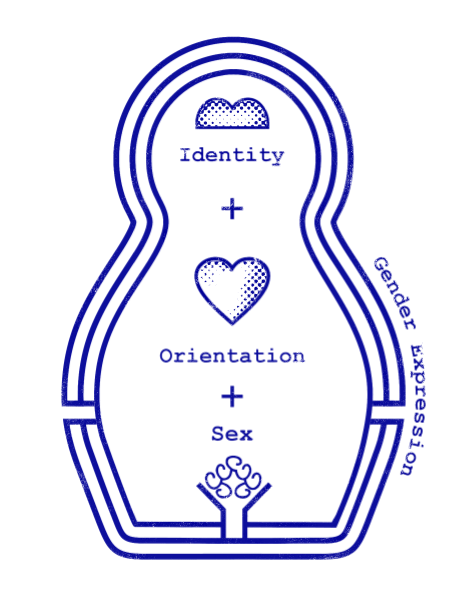
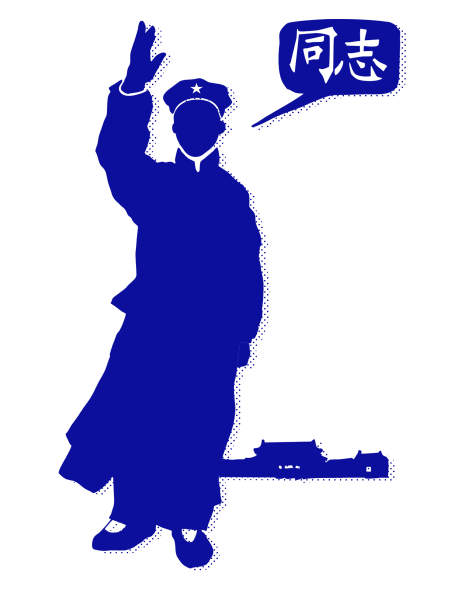
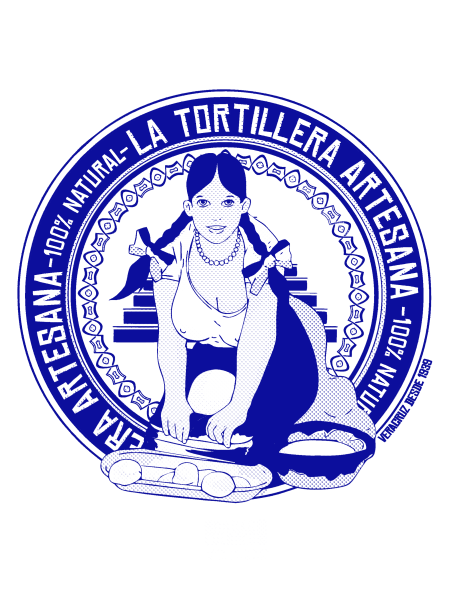
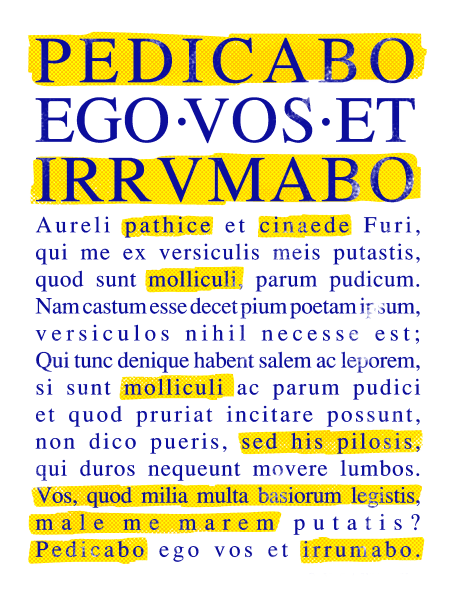

Can you help us with this dictionary?
You can do it in two ways, sending an email with some words you know, and also, spreading our work on your social networks.
Share it!